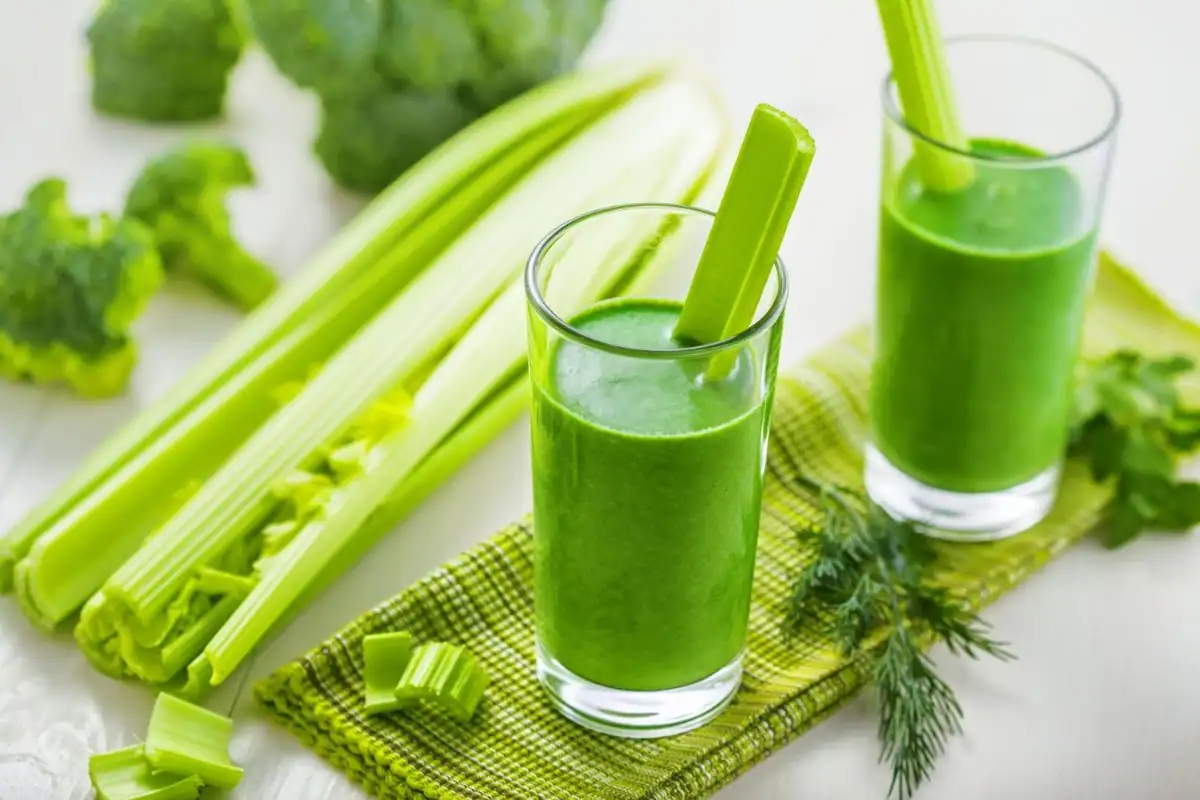Advertisement
Why Celery Is a Superfood: Top Health Benefits Explained
Updated: Nov 7, 2024
Advertisement
Research shows that adding celery to your daily routine brings a range of health benefits. While it may not be the first food that comes to mind when thinking of superfoods, celery’s crunchy, refreshing taste is packed with essential vitamins and minerals that make it a fantastic addition to any diet. Loaded with fiber, potassium, and vitamins C and B6, celery is a nutrient powerhouse. Whether you’re snacking on it raw or adding it to a dish, celery deserves a spot in your grocery cart. Let’s dive into some of the standout benefits this simple vegetable offers.
Anti-Inflammatory Properties
Celery is rich in antioxidants and nutrients that have been shown to reduce inflammation. Since inflammation can lead to various chronic diseases, eating anti-inflammatory foods is always a smart choice. Celery, in particular, may help manage symptoms of inflammatory conditions like arthritis, gout, and irritable bowel syndrome. If you’re not a fan of celery’s taste, don’t worry! Try dipping it in peanut butter or a bit of low-fat yogurt to enjoy this benefit without sacrificing flavor.
Advertisement
Weight Loss Support
While celery doesn’t actually burn more calories than it provides, as some myths suggest, it’s still an excellent choice for weight loss. With only about 15 calories per cup and nearly five grams of fiber, celery helps you feel full without adding many calories to your day. This makes it an ideal snack if you’re trying to curb afternoon cravings. Instead of reaching for high-calorie chips, celery can fill you up and support your weight management goals.
Advertisement
Liver Health Booster
Some studies suggest that celery can promote liver health. Rich in antioxidants and vitamins like A, B6, C, and K, celery may help cleanse the liver, reducing fatty deposits that are often associated with high cholesterol and obesity. Many believe that celery, especially when fresh and organic, can help eliminate accumulated toxins from the liver. Though more research is needed, celery’s potential benefits for liver health make it a worthwhile addition for those concerned about liver function.
Advertisement
Aids Digestion
Celery has diuretic properties, which means it increases urination and helps reduce salt absorption by expelling it through the urine. This quality can aid in detoxifying the digestive system, making it easier for your body to absorb nutrients from food. Celery’s fiber content also supports regular, healthy bowel movements, further benefiting digestive health. Choosing natural foods like celery over processed snacks is a positive step for digestive wellness.
Advertisement
Cholesterol-Lowering Effect
If you’ve been adding more celery to your diet, you might notice an improvement in your cholesterol levels. Celery contains nutrients known to reduce lipid levels, particularly low-density lipoprotein (LDL), the “bad” cholesterol that can increase the risk of heart disease, stroke, and artery blockage. Given the costly medical treatments associated with cardiovascular issues, adding celery to your diet could be a budget-friendly and heart-healthy choice.
Advertisement
Infection-Fighting Properties
Celery has long been valued as an infection-fighting remedy, with its seeds used for centuries to ward off bacteria. Celery seeds contain antimicrobial properties that help detoxify the body and potentially slow down bacterial growth. Herbalists often recommend celery seeds for boosting the immune system as a preventive measure or to assist the body in fighting off bacterial infections. Remember, though, that severe infections typically require antibiotics prescribed by a physician, but celery seeds can give your immune system an extra boost.
Advertisement
Supports Blood Clotting
Celery’s high vitamin K content plays a significant role in supporting blood clotting. Vitamin K affects platelets, which are cells involved in the clotting process, helping to heal both internal and external cuts. Eating foods rich in vitamin K, like celery, ensures that your body has the nutrients it needs for efficient blood clotting. This benefit is shared by other leafy greens, so including a variety of vitamin K-rich foods in your diet can help maintain good blood flow.
Advertisement
Lowers Blood Pressure
Celery isn’t just good for cholesterol; it’s also shown to lower blood pressure. Celery contains a compound called NPB, which helps relax the arterial walls and improve blood flow. Additionally, celery’s potassium and magnesium content contributes to this effect, making it an ideal snack for those looking to support cardiovascular health. If eating celery isn’t your thing, celery extract supplements are available as an alternative.
Advertisement
Potential Cancer Fighter
Celery may help reduce the risk of cancer due to its antioxidants and unique compounds called polyacetylenes. These compounds have been found to lower the risk of cancer by preventing the growth of certain cells and by supporting immune health. Alongside its antioxidant properties, celery’s polyacetylenes make it a powerful food choice for natural cancer prevention. However, if you’re concerned about your cancer risk, always consult a doctor for a personalized approach.
Advertisement
Prevents Heart Disease
With its blood pressure-lowering, cholesterol-reducing, and weight-managing qualities, celery provides robust support for heart health. Since high cholesterol, hypertension, and obesity are leading contributors to heart disease, eating celery can be a preventive measure. Packed with vital nutrients, celery offers not only cardiovascular benefits but also an energy boost, encouraging a more active lifestyle that further strengthens heart health.
Advertisement
Scroll downfor the Next Article
.png)




